Revealed — Nurse’s Account of Charlie Kirk’s Final Moments — The Pocket Note Mystery and Shocking Records Doctors Tried to Keep Quiet.
Opening Shock
It was supposed to remain buried.
A secret confined to whispers in hospital corridors.
But one nurse — shaken, sleepless, and haunted by what she saw — has broken the silence.
Her testimony, emerging weeks after Charlie Kirk’s final moments, paints a picture far different from the sanitized official record. It’s not just about his sudden collapse or the attempts to save his life. It’s about what she noticed after the machines went silent: a crumpled note tucked inside his pocket.
That note, she claims, set off a wave of confusion among staff and sent administrators scrambling. And now, as fragments of unsealed records come to light, one question hangs heavier than all the rest:
what did Charlie Kirk know in his final hours — and why did someone try to bury the truth?

The Final Moments
According to the nurse, the hospital room was chaos in those last minutes. Doctors and specialists rushed in, alarms shrieked, monitors flickered with red alerts. Kirk’s breathing became shallow, then labored, then staggered to a halt.
“He wasn’t just another patient,” the nurse explained. “Everyone in that room knew who he was. There was pressure. Eyes everywhere. I’ve seen people fight for life before, but the atmosphere this time was different. It felt… heavier.”
For nearly half an hour, medical staff fought desperately. CPR, adrenaline, electric shocks — nothing seemed to bring him back. But what unsettled the nurse wasn’t only the futile battle to save him. It was what followed.
She swears that as they prepared the body, a colleague reached into Kirk’s jacket — a jacket he had insisted on keeping close even when moved into the ward — and pulled out something folded tightly into his pocket.
“It wasn’t a wallet, not an ID, not anything like that,” she said. “It was a note. A handwritten note.”
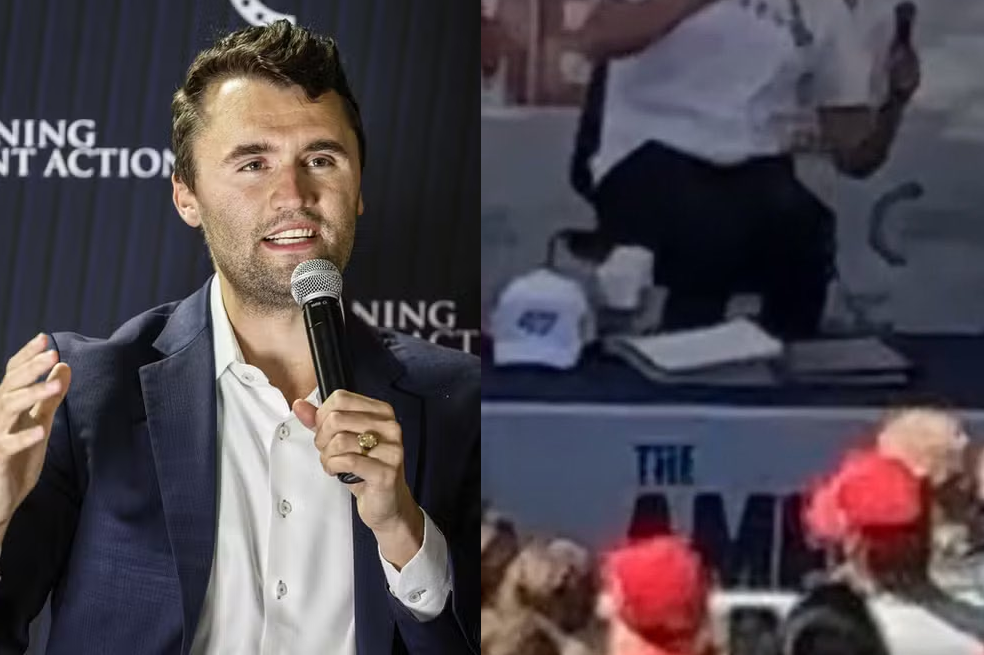
The Pocket Note
From here, the story grows stranger.
The nurse recalls that the note was quickly taken by administrators before any staff could read it in full. She caught only a glimpse. “There were just a few words visible. They didn’t look like random scribbles. They looked like names. Maybe a date. Maybe both.”
Staff who were present describe how quickly the mood shifted. Doctors who had been shaking their heads in sorrow suddenly avoided eye contact. An administrator rushed in, muttered something about “confidential material,” and pocketed the paper.
Why would a simple note spark such urgency? Why whisk it away before anyone could examine it?
Insiders now suggest the note could contain references to events Kirk had been tracking — meetings, people, or perhaps even a direct warning.
One phrase reportedly written on the paper was: “They can’t stop it.”
What exactly “it” referred to remains unknown. But the chilling tone has ignited speculation across the political and media landscape.
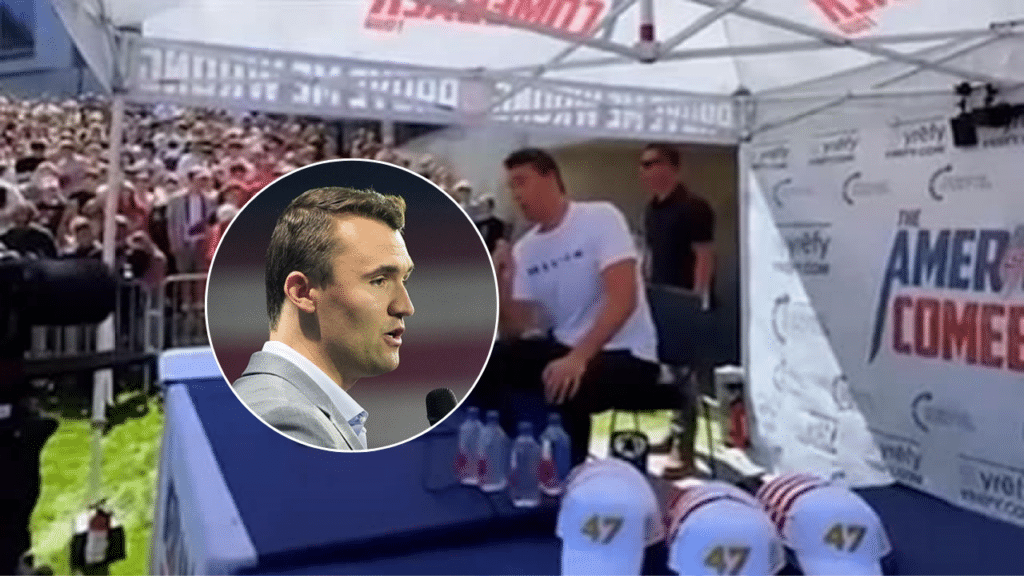
Unsealed Medical Records
If the nurse’s story stopped there, it would be unsettling enough. But newly unsealed records from the hospital’s files have only deepened the mystery.
For weeks, the official narrative was simple: Charlie Kirk experienced a sudden medical emergency, doctors attempted resuscitation, and he passed away despite all efforts. Straightforward. Clean. End of story.
Except the records show otherwise.
The documents reveal contradictions about timelines: one entry claims resuscitation lasted 29 minutes, while another report insists it was just 14. The dosage logs for key medications are inconsistent, with one version listing drugs that another doesn’t mention at all.
Most strikingly, there are unexplained gaps — entire five-minute windows with no recorded notes. For a case involving such a high-profile figure, those omissions are glaring.
“This isn’t sloppy recordkeeping,” one insider told reporters. “This is deliberate. Someone wanted certain details to vanish.”
Voices From the Inside
The nurse who spoke out isn’t alone. Anonymous staff have since described unusual instructions from higher-ups: avoid discussing the case, delete any unofficial photos, and refrain from answering media inquiries.
One technician admitted, “We were told if we valued our jobs, we’d stick to the script. That script was: sudden collapse, no foul play, nothing to see here.”
Yet off the record, whispers tell a different story. Some say Kirk had been restless in the hours before his death, asking for his phone repeatedly. Others mention visitors whose names never appeared on the official log.
And all of it circles back to the note in his pocket.

The Cover-Up Allegations
Why bury a note? Why hide medical inconsistencies?
Theories vary. Some claim Kirk had uncovered sensitive information in his political and media work, information that powerful players would do anything to suppress. Others suggest internal conflicts — disputes within circles that once supported him.
The hospital itself has remained defensive, issuing statements about “respecting privacy” and “upholding standards.” But to critics, these are evasions, not answers.
“The silence speaks volumes,” said one commentator. “If there was nothing unusual, why hide anything at all?”
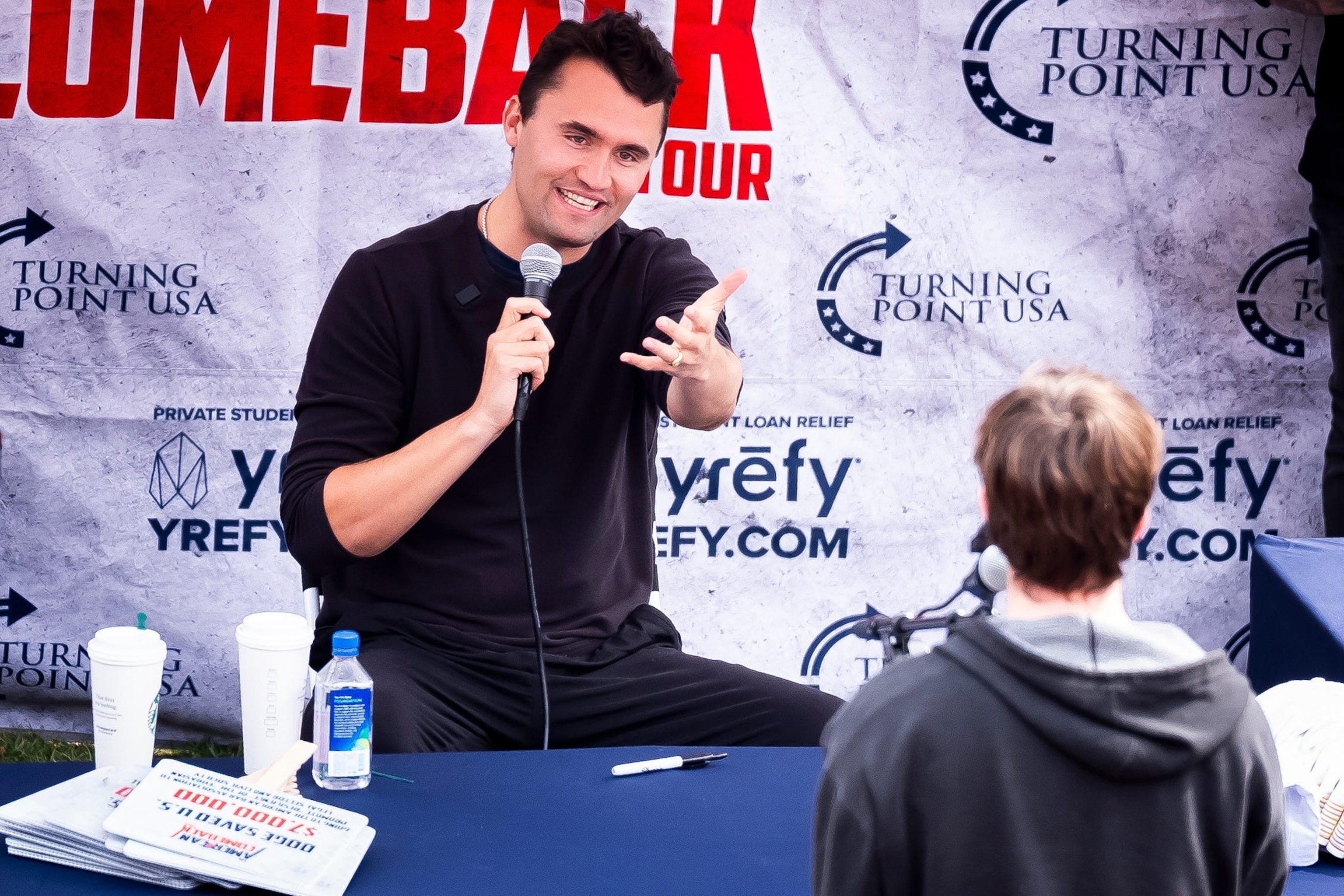
Public Reaction
News of the nurse’s account and the leaked records spread like wildfire. Online forums lit up with speculation. Supporters demanded a full independent investigation, while skeptics accused the media of manufacturing scandal.
But regardless of allegiance, the public’s reaction shared a common thread: disbelief that such crucial details could be swept aside so easily.
Has the public really been told the whole story? Or just the version officials wanted them to hear?
Theories That Emerge
The pocket note has become the centerpiece of countless theories.
-
The Warning Theory: Some believe the note was Kirk’s attempt to leave a final clue about threats he was facing. If “they can’t stop it” referred to an operation or plot already in motion, then his death may not have been random at all.
-
The Name List Theory: Others argue the note contained names of individuals connected to sensitive dealings. If true, its disappearance was no accident — it was confiscated to protect those identities.
-
The Personal Confession Theory: A smaller camp suggests the note might have been personal — an admission, apology, or final message to a confidant. But even then, why hide it? Unless its contents pointed indirectly to larger truths.
Compounding the mystery are the unsealed records themselves. If those inconsistencies were simple clerical errors, why did it take weeks — and legal pressure — for them to surface?
Each new detail strengthens the impression of something bigger lurking beneath the surface.
Closing Suspense
The nurse’s account has now cracked open a door that many believed was locked shut. A pocket note, contradictory records, administrators scrambling to control the narrative — it all points to a story still unfolding.
As the public demands transparency, insiders brace for further leaks. If even part of the nurse’s testimony proves true, the ramifications stretch far beyond a single hospital ward.
Because this is no longer just about Charlie Kirk’s final moments. It’s about what he might have known, who wanted it silenced, and why.
No Apologies, No Retreat: Jay Leno Breaks His Silence in the Most Shocking Way — Fans Praise Him, Critics Call It Reckless, and Sources Say Hollywood’s Power Struggle Has Darkened Even Further

No Apologies, No Retreat: Jay Leno Breaks His Silence in the Most Shocking Way — Fans Praise Him, Critics Call It Reckless, and Sources Say Hollywood’s Power Struggle Has Darkened Even Further
Jay Leno, the long-time late-night host known for his quick wit and fearless commentary, has done it again. In a move that has rocked Hollywood and ignited nationwide debate, Leno broke his silence following his explosive remarks about the assassination of Charlie Kirk. His words, delivered with the signature charm and razor-sharp delivery that have defined his career, have drawn both adoration and condemnation — and insiders are claiming this might be only the beginning of a seismic shift in Tinseltown power dynamics.
For decades, Leno has walked a fine line between entertainment and commentary, never shying away from controversy. But the latest incident takes that legacy to an entirely new level. Fans flocked to social media to praise him for standing his ground, calling him a “defender of truth” and a “voice of reason in chaotic times.” Critics, however, branded his statements as reckless, irresponsible, and potentially dangerous, warning that Hollywood’s already volatile political climate could be further destabilized by such provocative public remarks.
Sources close to the matter reveal that Leno’s team spent weeks carefully crafting the statement, balancing timing, tone, and the expected backlash. “This was calculated,” one insider said. “Jay wanted to make a point, and he wanted everyone to feel the weight of it. Hollywood may never be the same.”
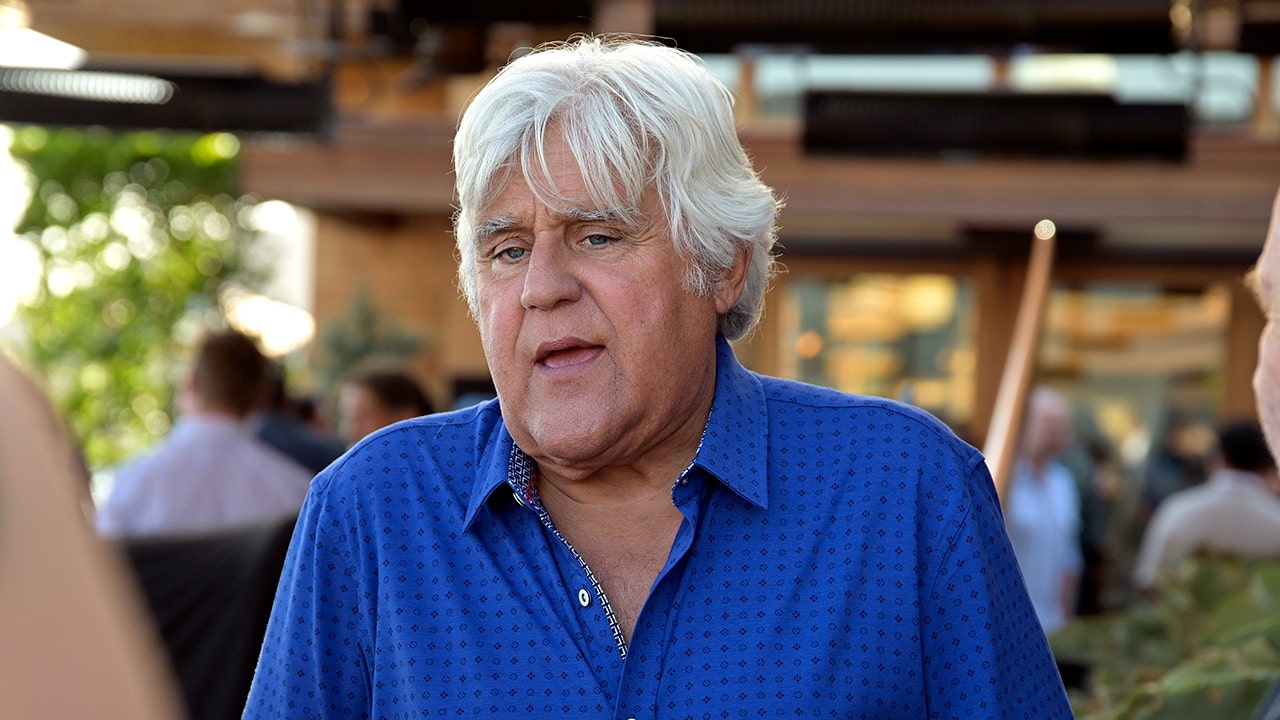
The Moment That Shook Tinseltown
The context of Leno’s statement cannot be understated. Charlie Kirk’s assassination was already a watershed moment, leaving the nation in shock and mourning. Public figures across politics, entertainment, and social media weighed in, each statement adding fuel to the fire. Into this charged atmosphere stepped Jay Leno, refusing to issue a standard condolence or a politically safe comment. Instead, he delivered a statement that was part eulogy, part warning, part indictment of those seeking to manipulate the tragedy for gain.
The first lines of his public remarks immediately grabbed attention: “I will not apologize for speaking the truth, even when it makes people uncomfortable. Silence is complicity, and I am not silent.” Within minutes, screenshots of the statement were circulating across Twitter, Facebook, and Instagram. The post quickly garnered hundreds of thousands of likes, retweets, and shares, as well as thousands of comments expressing both shock and support.
Social media was divided almost instantly. Hashtags like #JayLenoUnfiltered and #FreeSpeechHero trended on Twitter, while other trending tags such as #RecklessLeno and #HollywoodGoneWild captured the outrage. Memes, GIFs, and short video clips dissecting every word of his statement proliferated. The debate was no longer confined to traditional media; it had become a viral cultural moment.

Fans Rally Behind Leno
Fans were quick to defend Leno, praising his courage and integrity. “Finally, someone in Hollywood is speaking without fear,” wrote one Twitter user. Another commented, “Jay Leno just reminded the world what it means to stand up for truth.” The sentiment was echoed across fan pages, discussion forums, and YouTube comment sections. Many viewed his refusal to back down as a rallying cry for free speech and a counterbalance to what some perceive as Hollywood’s increasing censorship and self-censorship in the wake of political pressure.
Supporters also pointed out that Leno’s timing was impeccable. The nation was still processing the shock of Charlie Kirk’s death, and public opinion was volatile. By breaking his silence in such a direct and uncompromising manner, Leno not only ensured his statement could not be ignored, but also positioned himself as a central figure in the ensuing dialogue.
Critics Cry Foul
However, not everyone shared the enthusiasm. Critics immediately decried Leno’s comments as inflammatory and reckless. Some accused him of exploiting a national tragedy for personal attention and ratings, claiming his words risked further polarizing an already tense public environment. Opinion pieces appeared in major outlets questioning the ethics of Leno’s statement, debating whether he had crossed a line between commentary and provocation.
Some critics even suggested that his remarks could have legal implications if interpreted as incitement. While no formal actions have been reported, the fear of misinterpretation only added to the frenzy surrounding the statement.
Inside Hollywood: Power Plays and Shadow Wars
Beyond the public reaction, Hollywood insiders are speaking in hushed tones about the ramifications behind the scenes. The industry, known for its intricate network of alliances, rivalries, and hidden agendas, is said to be rattled by Leno’s unfiltered commentary. Sources suggest that executives and agents are scrambling to gauge the potential fallout, with some worried about how it might affect ongoing projects, partnerships, and negotiations.
One anonymous insider revealed: “Jay has always been a wild card, but this… this is a game-changer. People are starting to rethink who holds influence and power. The balance is shifting, and some of the old guard is nervous.”
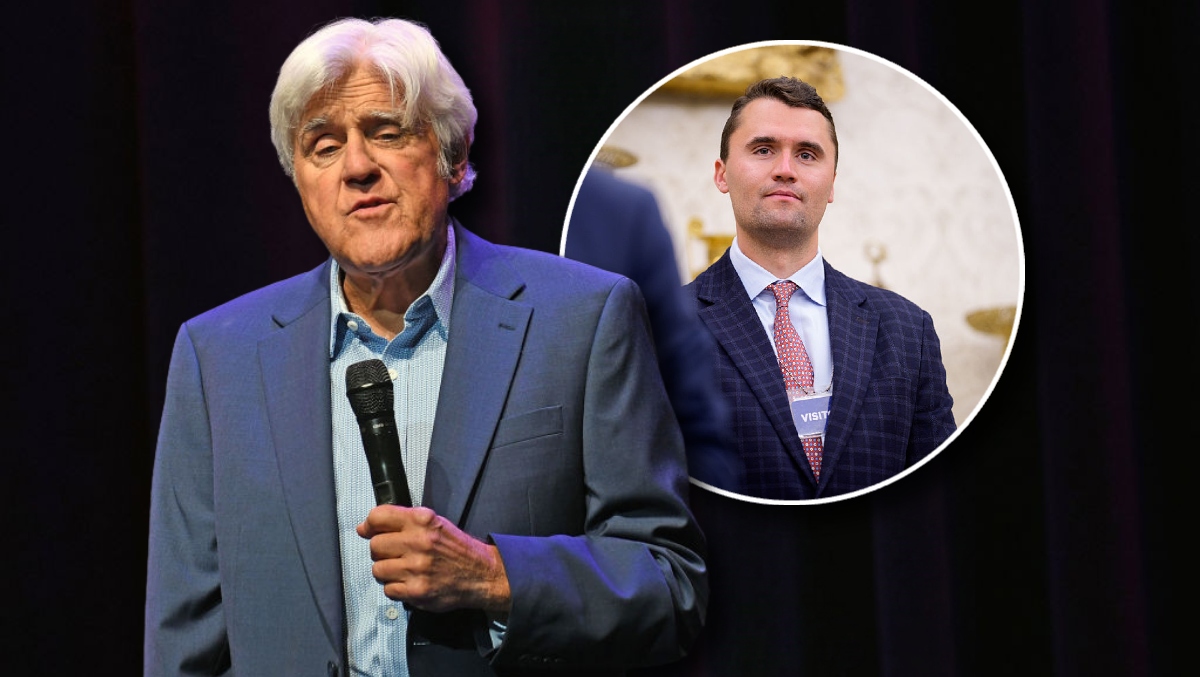
The Strategy Behind the Statement
Interestingly, it appears that Leno’s statement was not an impulsive move. According to sources familiar with the situation, he and his team meticulously planned the release. From analyzing the timing of social media traffic to anticipating potential backlash from various factions, every detail was calculated to maximize impact. This suggests that Leno understands the stakes involved and is intentionally using his voice to influence the conversation, rather than merely responding to events.
Potential Fallout and Future Implications
Analysts predict that the repercussions of Leno’s statement could be far-reaching. There is speculation that studios may adjust their casting, marketing, or production strategies in response to the public’s reaction. Public figures may also take note, re-evaluating how they address controversial events and tragedies in the public eye. In essence, Leno’s words could reshape Hollywood’s approach to commentary, publicity, and political engagement for years to come.
Additionally, the debate has raised broader questions about freedom of speech, accountability, and the responsibilities of public figures. While some argue that Leno has set a new standard for courageous expression, others worry about the precedent it may set for sensationalism and the blurring of entertainment and serious commentary.
A Cultural Flashpoint
For many observers, Leno’s statement is not merely about one individual or one event. It has become a symbol of the ongoing tension between celebrity influence, political discourse, and public accountability. The polarized responses reflect deeper societal divides, illustrating how a single statement from a high-profile figure can ignite widespread discussion, reflection, and conflict.
Voices from the Community
Public reactions have varied widely. Interviews with everyday citizens reveal a mix of admiration, skepticism, and concern. Some describe feeling empowered by Leno’s stance, seeing it as a defense of principles they hold dear. Others report discomfort, fearing that such bold statements may escalate tension and conflict.
Journalists covering the story note that this incident represents a larger trend in modern media: the increasing importance of social media, the instantaneous spread of information, and the difficulty of controlling narratives in a hyper-connected world. Leno’s statement, therefore, is both a case study in celebrity influence and a reflection of contemporary challenges in public communication.
Conclusion: The Legacy of Silence Broken
Jay Leno’s decision to break his silence has proven to be a defining moment in both his career and in the public discourse surrounding Charlie Kirk’s assassination. Whether celebrated as a hero of free speech or criticized as dangerously reckless, there is no denying the impact of his words. As Hollywood navigates the aftermath, insiders continue to speculate about the long-term consequences, both for Leno personally and for the broader industry.
In the end, Leno’s statement serves as a reminder that even in a world dominated by carefully curated images and messages, a single act of candor — delivered with timing, precision, and courage — can reverberate across the globe, sparking dialogue, debate, and perhaps even change.









